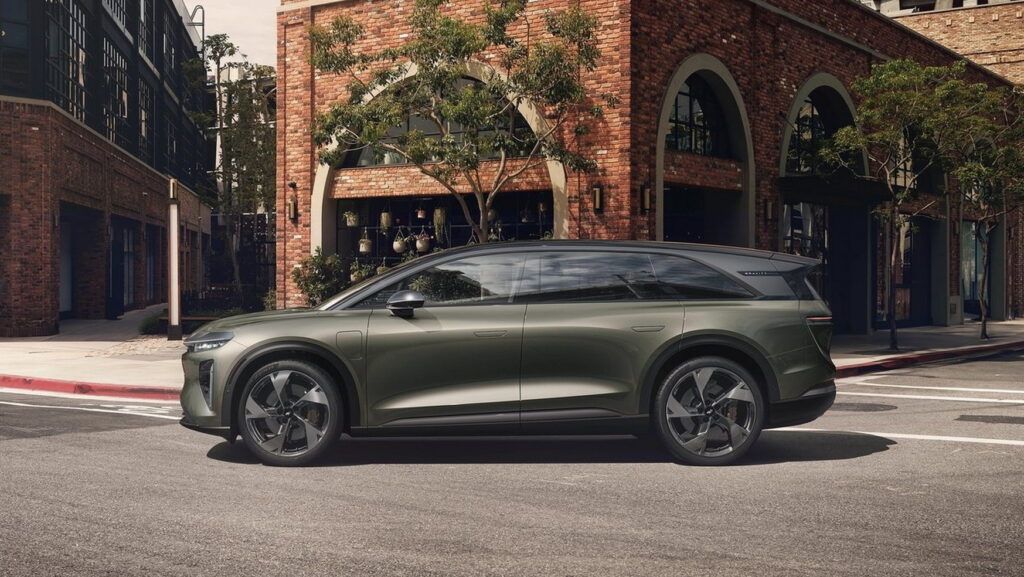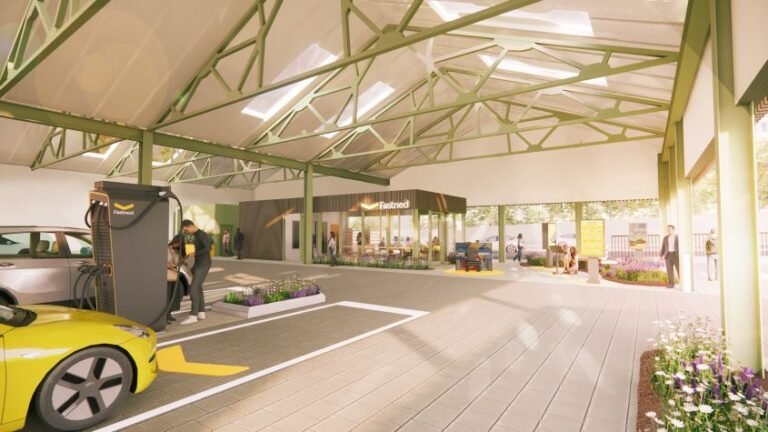

- Lucid acknowledges that all car manufacturers will need to increase prices in the US.
- While the brand builds its electric vehicles locally, it has a large global supply network.
- The automaker is strengthening its partnership with Panasonic for battery materials.
Even vehicles built in the United States aren’t immune to global pressures. Although every Lucid vehicle sold domestically is assembled on American soil, interim CEO Marc Winterhoff says that prices are still likely to rise, due in large part to tariffs introduced under President Trump.
While he stopped short of confirming that Lucid’s own lineup will definitely see sticker hikes, the implication was clear: American consumers should brace for costlier new cars.
Read: Lucid SUV Costs 30% More To Lease Than Sedan Despite Being Cheaper
During a recent interview, Winterhoff noted that the American car manufacturer is eager to localize more of its supply chain. One step it has taken is signing a deal with Graphite One to increase its supply of graphite that’s processed in the United States. Despite these efforts, the global nature of its supply chain will make the Air and Gravity more expensive to produce.
Tariffs Push Costs Upward
“For the American consumers, vehicles are going to be more expensive under the tariff regime,” he told Bloomberg Television. “There’s no other way around it. Yes, you can say you just need to localize. But, that still increases the cost as there’s a reason why the supply chain is so global because certain things are either not available here in the US, or are just very expensive, so you import them.”
He went on to point out that even when companies work to reduce dependence on imports, shifting operations to the U.S. often drives costs higher anyway. That leaves automakers with limited choices.
“[Even] if you change that, you still have higher costs here in the United States, which means manufacturers like us, or any manufacturer, have to increase prices. There’s no other way, unless you want everybody to be non-profit organizations, which then would lead to no innovation and no technology leadership. In the current global climate, that’s the last thing we want.”

Shifting the Supply Chain
In a bid to reduce the impact of the tariffs, Lucid is deepening its relationship with Panasonic so it can source more of the raw materials for its battery cells from the US. Currently, much of the raw materials Lucid uses for its battery cells come from Japan and South Korea, but two and a half years ago, decided it needed to localize, thanks in part to advanced manufacturing production credits which helped to defray costs.
“We are working with Panasonic to further localize the supply chain for the cell,” Winterhoff added. “It doesn’t do you a lot of good if you manufacture here [in the US] but you still import the raw material which then subject to tariffs.”




